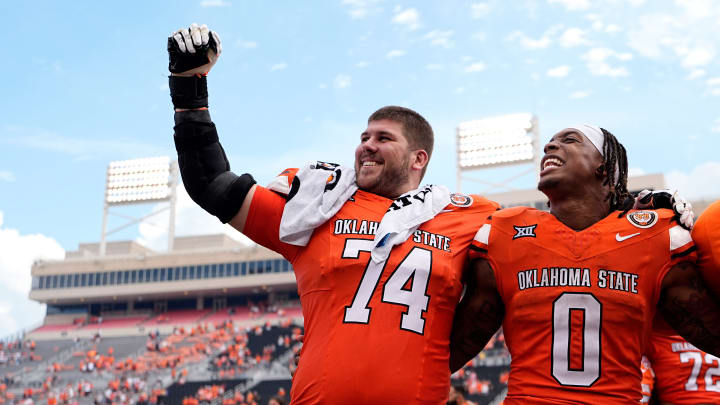NCAA Bans OSU's QR Code Helmet Fundraising Initiative

Controversially, the NCAA has officially banned Oklahoma State from utilizing an innovative initiative that featured QR codes on football players' helmets. This forward-thinking plan aimed to streamline donations tied to Name, Image, and Likeness (NIL) opportunities, enabling fans to contribute directly to the athletes' NIL funds. However, the NCAA classified the 1.5-inch QR codes as “advertising and/or commercial marks,” contravening existing regulations, just ahead of OSU's season opener against South Dakota State.
In a statement, Chad Weiberg, OSU's athletic director, voiced his discontent with the NCAA's interpretation of the rules. "We disagree with the interpretation of the rule but will abide by it and work with the appropriate groups to lead on the needed change. Our people came up with an innovative concept to raise NIL value of our student-athletes, but ultimately, it just serves as the latest example of how college sports are evolving at a faster pace than the rulebook.". Despite his disagreement with the ruling, he confirmed that the university would adhere to the NCAA's decision.
The Big 12 Conference, of which OSU is a member, has rallied behind the university's efforts to push the envelope in fundraising. Big 12 Commissioner Brett Yormark stressed the urgent need for updated legislation to support student-athletes more effectively in this new era. "As we enter this new age of college athletics, the Big 12 Conference welcomes the opportunity to be at the forefront of innovation and creativity," Yormark said. "I look forward to partnering with the NCAA and my fellow conference commissioners in an effort to modernize legislation that enables our schools to drive value for our student-athletes.”
While the QR codes were not displayed on the helmets during the game, OSU swiftly transitioned to alternative promotional strategies. The QR code image was prominently showcased throughout Boone Pickens Stadium, appearing on equipment bag tags, drink coasters in premium areas, and the stadium's video board.
The NCAA's ruling contributes to the ongoing friction between the rapid evolution of college athletics and the existing regulatory framework. As institutions like OSU experiment and advocate for inventive fundraising methods, the NCAA's cautious stance raises questions about what is viable when pioneering NIL opportunities in college sports.
